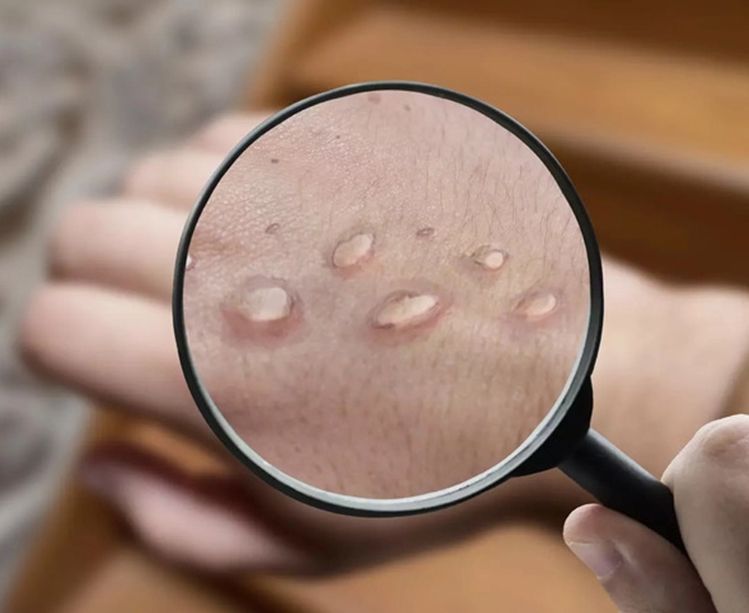Despite the vaccine, the world has not recovered completely from the deadly COVID-19 virus and its variants that it is sensing yet another virus Monkey Pox which is already categorized as a pandemic by WHO.
With its recent outbreak in January 2022, 2103 cases were reported till June 15 by WHO. 1 Currently above 14,000 cases of Monkeypox have been reported in more than 60 countries including Europe (maximum cases), the UK, Australia, Canada, Nigeria, Singapore, and the US with 5 deaths. India reported its very first case of the Monkeypox virus on 14 July 2022.
The virus is spreading at an abrupt rate due to close contact with an infected person or animal, or material contaminated with the virus and the populations unvaccinated for smallpox are more prone to infection with this virus.
Scrutinizing the severity of the current situation, The Indian Council of Medical Research (ICMR)-NIV, Pune had already trained 15 research and diagnostic laboratories across the country to help the country's preparedness for Monkeypox early detection.2
Though the death rate due to the virus is not exceeding globally even then it is another alarming situation persisting globally which needs to be managed before it becomes uncontrollable.
Also, an advisory is generated by the government of India for the prevention and management of the Monkeypox virus.
Here are some preventive measures by the government to stop the virus from spreading further:
1. If you are infected, remain in isolation, wear a surgical mask, and keep your lesions dry and uncovered until all lesion crusts have naturally fallen off and a new skin layer has formed.
2. Avoid close contact with infected people, dead or live wild animals as the virus is spreading from animals to humans. Any contact between broken skin and infected fluids from a patient, respiratory droplets, or even scabs can give the virus another carrier.
3. Also avoid contact with contaminated clothes, bedding, or materials used by infected people.
4. The virus can also be transmitted to the fetus during pregnancy or to the newborns by close contact during and after birth. Pregnant women who are about to give birth are advised to have C-sections to avoid the risk of transmittance.
Adverse pregnancy outcomes, including spontaneous pregnancy loss, Preterm delivery, neonatal infection, and stillbirth, have been also been reported in cases of confirmed Monkeypox infection during pregnancy.5
5. According to the CDC, vaccination within four days of exposure may prevent disease onset, and vaccination within 14 days may reduce disease severity.
Currently, there is no specific clinically proven treatment for the Monkeypox virus. Though the antiviral drugs - Tecovirimat, Cidofovir, Vaccinia Immune Globulin Intravenous (VIGIV), and brincidofovir may provide some relief, they have not been claimed as a treatment for Monkeypox.3
Though two vaccines have been licensed by the U.S. Food and Drug Administration (FDA) for preventing Monkeypox infection – JYNNEOS (also known as Imvamune or Imvanex) and ACAM2000, but there is no current data available on the effectiveness of these vaccines.4
The Treatment of Monkeypox is mostly directed at relieving its symptoms. The symptoms of Monkeypox are clinically less severe but are similar to those of smallpox.

The symptoms currently being evolved are:
- Fever
- Skin rash that can look like pimples or blisters and appears on the face, inside the mouth, and even private parts of the body, including the genitals or anus.
- Dehydration
- Poor appetite
- Nausea, Vomiting, and Diarrhea
- Oral ulcers
- Genital ulcers
- Infections of skin and lungs in extreme cases
These Symptoms may appear before or after 21 days after the attack of the virus. These symptoms might last from 3-4 weeks. Patients with less severe symptoms are recommended to isolate at home under a careful assessment.
Here are a few home remedies that can provide you relief from Monkeypox virus symptoms:
- Use Contactless thermometers to record the temperature and examine any change in symptoms twice per day for 21 days which is the incubation period for Monkeypox.
- Patients, especially those who have respiratory symptoms (e.g., cough, shortness of breath, sore throat) should use an oxygen mask in case of breathing difficulty.
- Avoid scratching dry skin and maintain optimum humidity levels with humidifiers to get relief from itchy scabs while recovering.
- Keep cleaning the skin with antiseptics to reduce the risk of other skin infections.
- A Luke warm water bath with baking soda or Epsom salts can also provide relief from lesions on the body.
- Rinse your mouth with saline water or baking soda to get relief from lesions like in the case of canker sores.
- Have a nutritious diet and switch to food items rich in vitamins A, D, E, and C and antioxidants that will boost your immunity and speedy recovery after infection. Foods like carrots, citrus fruits, fruit juices, nuts, seeds, and dairy products are rich in those vitamins.
- A protein-rich diet is also known to have an antiviral effect on the virus. Strictly avoid uncooked meat. Rather switch to plant-based meat for a while.
- Also include Vitamin C supplements daily to your diet during infection and even after recovery.
- Lastly, stay safe and be aware of the spread of the virus near you and in the country to control its spread.














